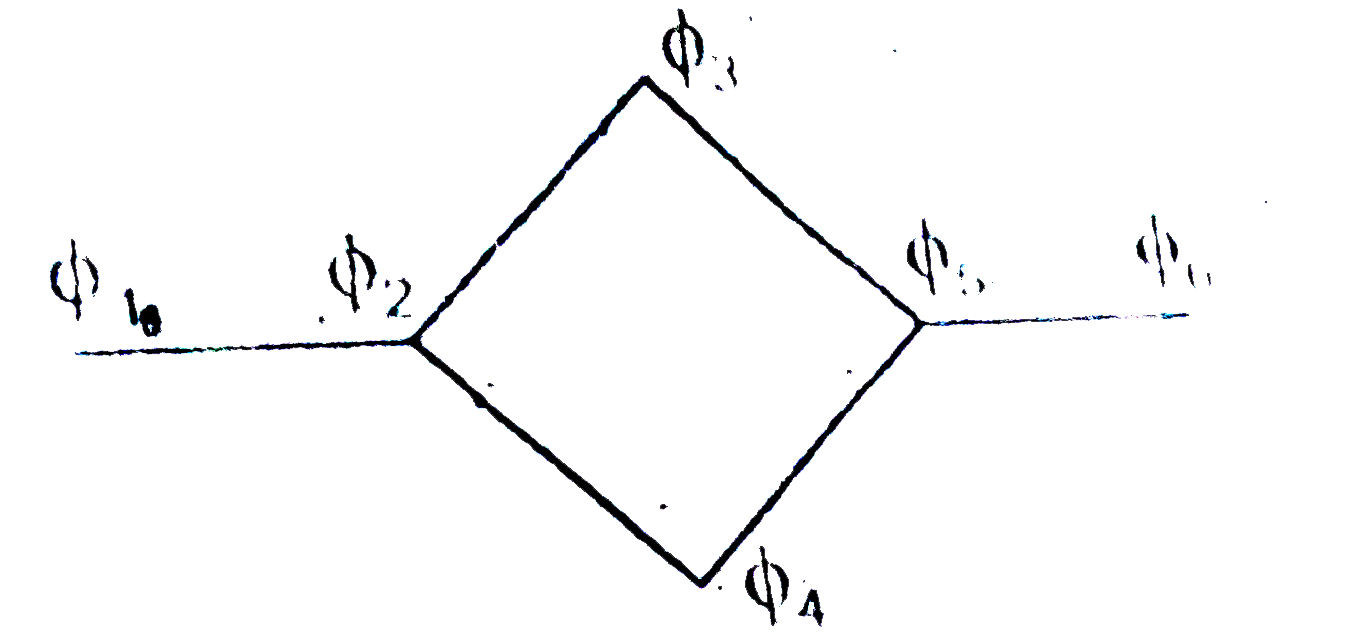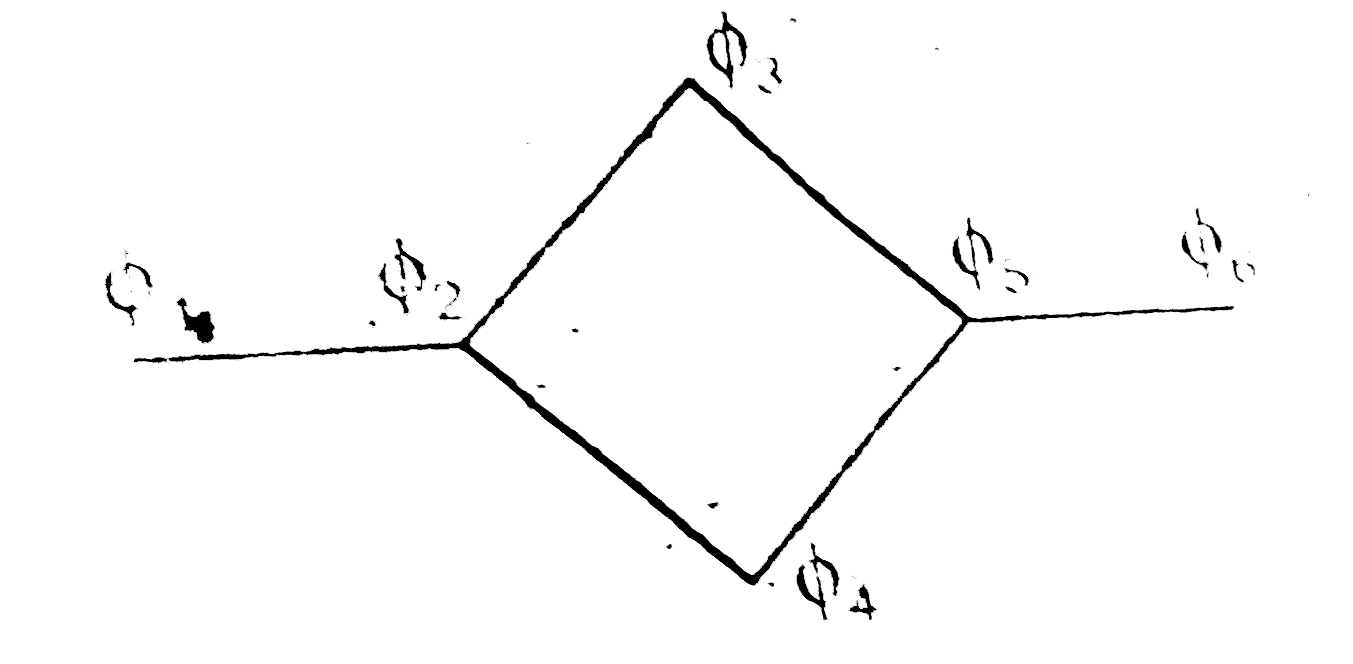Complete Solutions to Assignment (Section-D) Linked Comprehension Type Questions of chapter THERMAL PROPERTIES OF MATTER of Class 12 book with complete answers and questions
| Class 12 | PHYSICS |
| Chapter | THERMAL PROPERTIES OF MATTER |
| AAKASH INSTITUTE | Assignment (Section-D) Linked Comprehension Type Questions |
| Number Of Questions | 9 |
| Academic Year | 2023-24 |
A "flow calorimeter" is used to measure the specific heat of a liquid. Heat is added at a known rate to a stream of the liquid as it passes through the calorimeter at known rate, then a measurement of the resulting temperature difference between the in flow and the out flow points of the liquid stream enables us to compute the specific heat of the liquid. A liquid of density 0.85 `g//cm^(3)` flows through a calorimeter at the rate of 8.0 `cm^(3)//s`. heat is added by means of a 250 watt electric heating coil, and a temperature difference of `15^(@)C` is established in steady state conditions between the in flow and out flow points.
Q. Rate of heat added per second is
View SolutionA "flow calorimeter" is used to measure the specific heat of a liquid. Heat is added at a known rate to a stream of the liquid as it passes through the calorimeter at known rate, then a measurement of the resulting temperature difference between the in flow and the out flow points of the liquid stream enables us to compute the specific heat of the liquid. A liquid of density 0.85 `g//cm^(3)` flows through a calorimeter at the rate of 8.0 `cm^(3)//s`. heat is added by means of a 250 watt electric heating coil, and a temperature difference of `15^(@)C` is established in steady state conditions between the in flow and out flow points.
Q. Rate of heat absorption per unit specific heat capacity is
View SolutionA "flow calorimeter" is used to measure the specific heat of a liquid. Heat is added at a known rate to a stream of the liquid as it passes through the calorimeter at known rate, then a measurement of the resulting temperature difference between the in flow and the out flow points of the liquid stream enables us to compute the specific heat of the liquid. A liquid of density 0.85 `g//cm^(3)` flows through a calorimeter at the rate of 8.0 `cm^(3)//s`. heat is added by means of a 250 watt electric heating coil, and a temperature difference of `15^(@)C` is established in steady state conditions between the in flow and out flow points.
Q. Specific heat of the liquid is
View SolutionThree liquids A, B and C having same sepcific heats have masses m,2m and 3m. Their temperaures are 'theta',2theta and `3theta` respectively. Q. What is the temperature of mixture, when A and B are mixed?
View SolutionThree liquids A, B and C having same sepcific heats have masses m,2m and 3m. Their temperaures are 0,20 and `3theta` respectively. ltBrgt Q. What is the temperature of mixture, when A and B mixed?
View SolutionThree liquids A, B and C having same sepcific heats have masses m,2m and 3m. Their temperaures are 0,20 and `3theta` respectively. ltBrgt Q. What is the temperature of mixture, when Aand C all are mixed?
View SolutionSix identical conducting rods are connected as shown in figure. In steady state temperature of point `phi_(1)` is fixed at `100^(@)C` and temperature of `phi_(6)` at `-80^(@)C`

Q. What is the temperature of `phi_(2)`?
View SolutionSix identical conducting rods are connected as shown in figure. In steady state temperature of point `phi_(1)` is fixed at `100^(@)C` and temperature of `phi_(6)` at `-80^(@)C`

Q. What is the temperature of `phi_(3)`?
View SolutionSix identical conducting rods are connected as shown in figure. In steady state temperature of point `phi_(1)` is fixed at `100^(@)C` and temperature of `phi_(6)` at `-80^(@)C`

Q. What is the temperature of `phi_(5)`?
View Solution
Assignment (Section-D) Linked Comprehension Type Questions questions and complete solutions for chapter THERMAL PROPERTIES OF MATTER of AAKASH INSTITUTE ENGLISH of Class 12
All Exercises from AAKASH INSTITUTE Class 12 PHYSICS THERMAL PROPERTIES OF MATTER
- Assignment (Section-A) Objective Type questions (one option is correct)
- Assignment (Section-B) Objective Type questions (one option is correct)
- Assignment (Section-C) Objective Type questions (More than one option are correct)
- Assignment (Section-D) Linked Comprehension Type Questions
- Assignment (Section-E) Assertion & Reason Type Question
- Assignment (Section-E) Integer Answer Type Questions
- Assignment (Section-E) Match the columns
- Assignment (Section-H) Multiple True-False Type Questions
- Assignment (Section-I) Subjective Type Questions
- Assignment (Section-J) Akash Challengers Questions
- Example
- Try Youself